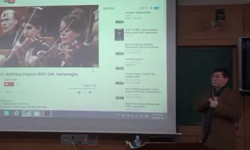본 연구에서는 선진국 노동시장 개혁의 대표적인 사례로 네덜란드 노동시장 개혁의 과정과 내용을 적응적 조합주의의 관점에서 검토해 본다. 1980년대 이후 네덜란드에서는 안정적 성장의 ...
http://chineseinput.net/에서 pinyin(병음)방식으로 중국어를 변환할 수 있습니다.
변환된 중국어를 복사하여 사용하시면 됩니다.
- 中文 을 입력하시려면 zhongwen을 입력하시고 space를누르시면됩니다.
- 北京 을 입력하시려면 beijing을 입력하시고 space를 누르시면 됩니다.
https://www.riss.kr/link?id=A102189361
- 저자
- 발행기관
- 학술지명
- 권호사항
-
발행연도
2016
-
작성언어
Korean
- 주제어
-
자료형태
학술저널
-
수록면
51-128(78쪽)
- 제공처
- 소장기관
-
0
상세조회 -
0
다운로드
부가정보
국문 초록 (Abstract)
본 연구에서는 선진국 노동시장 개혁의 대표적인 사례로 네덜란드 노동시장 개혁의 과정과 내용을 적응적 조합주의의 관점에서 검토해 본다. 1980년대 이후 네덜란드에서는 안정적 성장의 과실을 고르게 배분하기 위한 물가연동 임금제, 관대한 복지, 안정적 고용을 중심으로 전통적 조합주의의 사회협약 기제가 구조적 위기에 봉착하였다. 네덜란드의 노동시장 제도개혁과 사회적 타협은 유연하고 실용적이었다. 이는 정부 주도의 일방적 개혁보다 사회주체들 간의 자율적 협약을 도출하고, 이를 이행하는 적극적 조정의 성격이 강했다. 일자리 혁명으로 알려진 노동개혁은 노동조합, 사용자, 정부 간에 이루어진 복잡하고 대규모적인 정치경제적 교환을 포함하고 있었다. 본 연구에서는 1982년 이후 10여 년에 걸쳐 진행 된 네덜란드의 노동시장 제도개혁의 내용과 성격을 검토하고 그 정책적 시사점들을 적응적 조합주의의 틀 속에서 진행된 적응적 조정의 관점에서 설명한다. 네덜란드에서 이루어진 적응적 조정과 노동시장 개혁은 주체들 간의 상호 신뢰를 기반으로 지속적인 대화와 타협을 통한 적응 방식으로 이해될 수 있다. 경제주체들의 이해가 다양하고, 제도들 간의 복잡한 상호 연계로 인해 복지, 산업, 경제, 가계, 사회통합 등 수많은 관련 정책이나 제도적 요인들 간의 상호작용과 복잡성이 크게 증가한 오늘날 복잡성이 높은 제도들과 이해 당사자들 간의 조율과 조정 능력을 신장하는 것은 한 국가의 사회적 타협을 통한 경제 사회적 조정 역량을 가늠하는 핵심 기준이 되고 있으며, 네덜란드의 적응적 조합주의는 이러한 과제를 풀어가는 사회적 역량의 신장과 발전의 방향을 가늠하는 데 많은 시사점을 제공한다.
다국어 초록 (Multilingual Abstract)
This study is a trial to reexamine the so called ‘Dutch’ labor market reforms from the perspective of ‘adaptative corporatism’. As with other Western countries, Netherland had to suffer severe economic transformation and welfare crisis. In ord...
This study is a trial to reexamine the so called ‘Dutch’ labor market reforms from the perspective of ‘adaptative corporatism’. As with other Western countries, Netherland had to suffer severe economic transformation and welfare crisis. In order to face and overcome institutional crisis, major social actors and interest groups had to transform themselves by introducing major labor market and institutional reform reforms. Netherland were able to achieve relatively successful changes by shifting their traditional corporatism into a more adaptative, pragmatic, and flexible way. This study named Dutch model of social coordination as adaptative corporatism and tried to explain about two decades of labor market reform processes beginning from the early party of 1980s. The so called ‘Job Revolution’ has been a massive social and economic exchanges among major social forces including political parties, employers, and labor unions. Those processes are distinguished by long sustained social compromises and consistent execution of institutional reforms. Those changes can be understood as adaptative coordinations based on strong social trust among major interest groups and complex economic exchanges. Dutch social actors were able to carry out their reform by inclusive as well as flexible social compromises integrating diverse social interests.
목차 (Table of Contents)
- 요약
- Ⅰ. 서론
- Ⅱ. 노동시장 제도개혁 : 적응적 조합주의
- Ⅲ. 네덜란드의 노동시장 구조 개혁
- Ⅳ. 경제사회 패러다임의 전환
- 요약
- Ⅰ. 서론
- Ⅱ. 노동시장 제도개혁 : 적응적 조합주의
- Ⅲ. 네덜란드의 노동시장 구조 개혁
- Ⅳ. 경제사회 패러다임의 전환
- Ⅴ. 네덜란드의 적응적 조합주의 : 평가와 시사점
- Abstract
동일학술지(권/호) 다른 논문
-
- 고려대학교 노동문제연구소
- 조영철(Young-Chul Cho)
- 2016
-
- 고려대학교 노동문제연구소
- 박태주(Tae-Ju Park)
- 2016
-
- 고려대학교 노동문제연구소
- 이종선(Jong-Sun Lee)
- 2016
-
- 고려대학교 노동문제연구소
- 오세웅(Se-Woong Oh)
- 2016




 DBpia
DBpia






